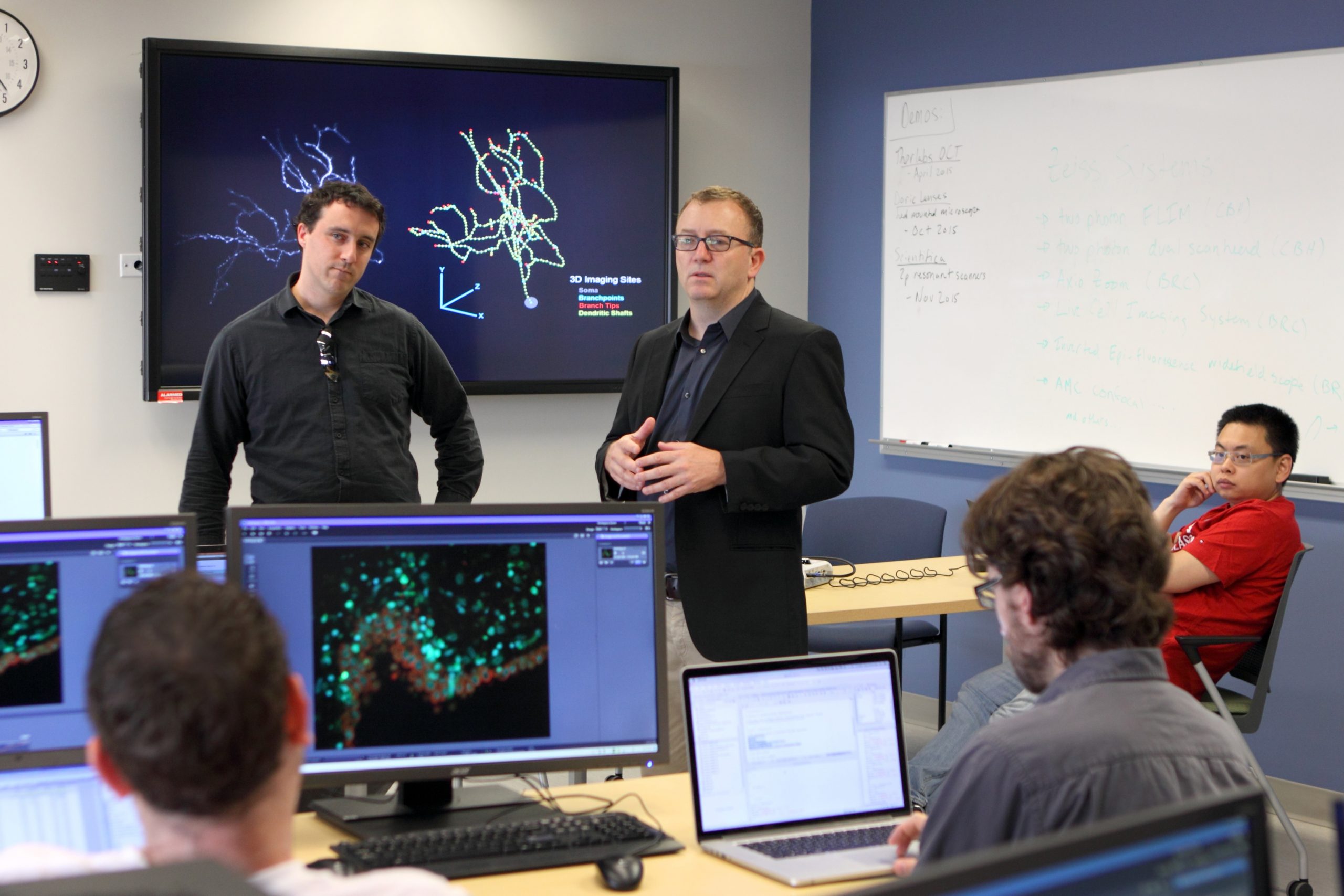
Hardware
The NINC has 8 high-end workstations which facilitate training and research in computational methods, programming, image processing and data analysis. Open to all NINC members. Log-in with your UBC CWL.
Software & GitHub
Our focus is on a do-it-yourself approach using open source tools like ImageJ, Cell profiler, and python with Jupyter notebooks. Join us on the UBC Brain Circuits GitHub. We also offer access to Solidworks, MATLAB, Adobe CS and various other commercial packages licensed by UBC.
Cloud, HPC, and Jupyterhub
We offer access to UBC cloud storage resources via UBC IT. High Performance Computing is available through the iMAP Project’s systems which were contributed to the Digital Alliance of Canada’s Cedar compute cluster at SFU. We can help migrate your computationally intensive tasks to these resources.The resources can be accessed through Jupyterhub.
Access to the NINC PCs is restricted to users from NINC member labs.
